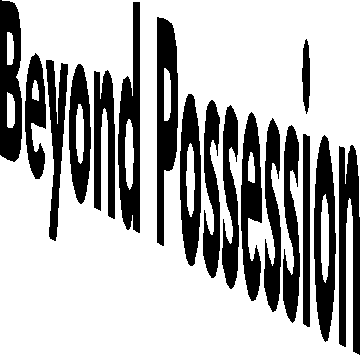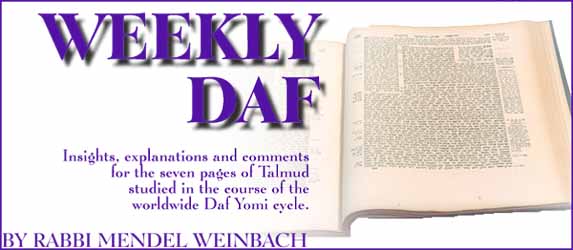Weekly Daf #58
Bava Basra 149 - 155 - Issue #58
13 - 19 Adar Sheini 5755 / 15 -21 March 1995
This publication is also available in the following formats:
![]()
![]()
![]() Explanation of these symbols
Explanation of these symbols
Deathbed Decisions
| The Rule: | A man who makes a deathbed bequest of all his possessions and subsequently recovers can retract his gift because it is obvious that he intended giving away everything he owned only because he expected to die. |
| The Issue: | What if he sold all his possessions on his deathbed and subsequently recovered - can he back out of the deal?
This question was put to Rabbi Yehuda. On one occasion he quoted his teacher, the Sage Rav, as ruling that he could not back out. On another occasion he quoted him as ruling that he could. |
| The Problem: | How do we reconcile these apparently conflicting rulings? |
| The Solution: | We examine what the seller did with the funds he received from the sale. If he kept them in his possession it is an indication that his sale was entirely conditional on his death and he therefore wished to have the money available to refund the buyer. But if we find that he used those funds to pay his debts it indicates that he intended the sale to be final regardless of whether he lived or died and he therefore cannot back out. |

| The Rule: | Reuven declares that he is giving all his possessions to Shimon. The gift is an irrevocable one because he makes the necessary kinyan for transferring ownership. The question is only what is considered to be included in the term "possessions"?
Proofs are presented that land, money, slaves, clothes, animals and even tefillin come under the definition of possessions and are included in the gift. The only object which remains a matter of doubt is a Sefer Torah. |
| The Questions: | Possession implies not only ownership but the ability to sell. On the one hand a Sefer Torah may not be sold as freely as other belongings and therefore should not come under the title of possessions. On the other hand a Sefer Torah may be sold if its proceeds are needed for the fulfillment of the important mitzvah of studying Torah or getting married. Perhaps even this limited range of freedom to sell qualifies a Sefer Torah to be considered a possession and included in his gift. |
| The Resolution: | The issue remains unresolved. Shimon can therefore not present a legal claim to Reuven's Sefer Torah, but if he took possession of this disputed "possession" we do not take it away from him. |
General Editor: Rabbi Moshe Newman
Production Design: Lev Seltzer
HTML Design: Eli Ballon, Michael Treblow
© 1995 Ohr Somayach International - All rights reserved. This publication may be distributed to another person intact without prior permission. We also encourage you to include this material in other publications, such as synagogue newsletters. However, we ask that you contact us beforehand for permission, and then send us a sample issue.
This publication is available via E-Mail
Ohr Somayach Institutions is an international network of Yeshivot and outreach centers, with branches in North America, Europe, South Africa and South America. The Central Campus in Jerusalem provides a full range of educational services for over 685 full-time students.
The Jewish Learning Exchange (JLE) of Ohr Somayach offers summer and winter programs in Israel that attract hundreds of university students from around the world for 3 to 8 weeks of study and touring.
Ohr Somayach's Web site is hosted by TeamGenesis
Dedication opportunities are available for Weekly Daf. Please contact us for details.







